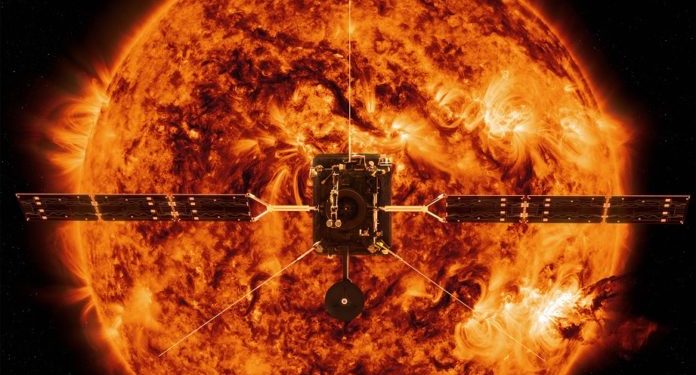Hundreds of tiny worms are set to blast off to the International Space Station (ISS) to help scientists understand more about human muscle loss and how to prevent it.
The nematode worm species, known as Caenorhabditis elegans, will be flown to the ISS on Thursday as part of a new project involving UK scientists.
The hope is that the research could also help shed light on developing new treatments for muscular dystrophies – a group of inherited genetic conditions that gradually cause the muscles to weaken.
The mission follows on from previous research carried out by the same team in 2018, who were investigating how molecular changes in space affects muscle and metabolism.
This time, the new experiments will aim to identify the precise molecules that cause these problems and also test out new therapies to prevent muscle loss in zero-gravity.
Britain’s Science Minister Amanda Solloway said: “Experiments in space push the frontiers of knowledge and provide real-life benefits for the rest of us back on Earth.
“It is astonishing to think that sending worms into space could improve our health and help us lead longer lives, and I am thrilled that UK researchers are leading this effort.”
The worms, which are about 1 millimetre in size, are known to share many of the biological characteristics as humans.
They are also affected by the biological changes caused by living in space – which includes changes to muscle mass and the ability to use energy.
Dr Bethan Philips, associate professor of clinical, metabolic and molecular physiology at the School of Medicine at the University of Nottingham, said: “Since the dawn of the space age, there have been concerns that space travel can be harmful to astronauts.
“We are very excited that this latest mission will enable us to build on the work we have already done to not only further explore what causes muscle loss with spaceflight, but to also look at how to prevent it.
“This work will have implications not only for astronauts but also for many situations on Earth.”
The worms will be housed in culture bags inside 24 matchbox-sized containers and fly to the space station on SpaceX’s Cargo Dragon 2 spacecraft from the Kennedy Space Centre in Florida.
Once on board the ISS, these containers will be placed into the incubator in the station’s Columbus Module where the experiments will be conducted.
Dr Tim Etheridge, associate professor at the University of Exeter, said: “The experiment will give us even more new information on the molecules that cause muscle decline in space, and whether targeting these with novel drugs and interventions can help.
“This information can then build the foundations for safely sending humans on long-term missions into deep space.”










Discussion about this post